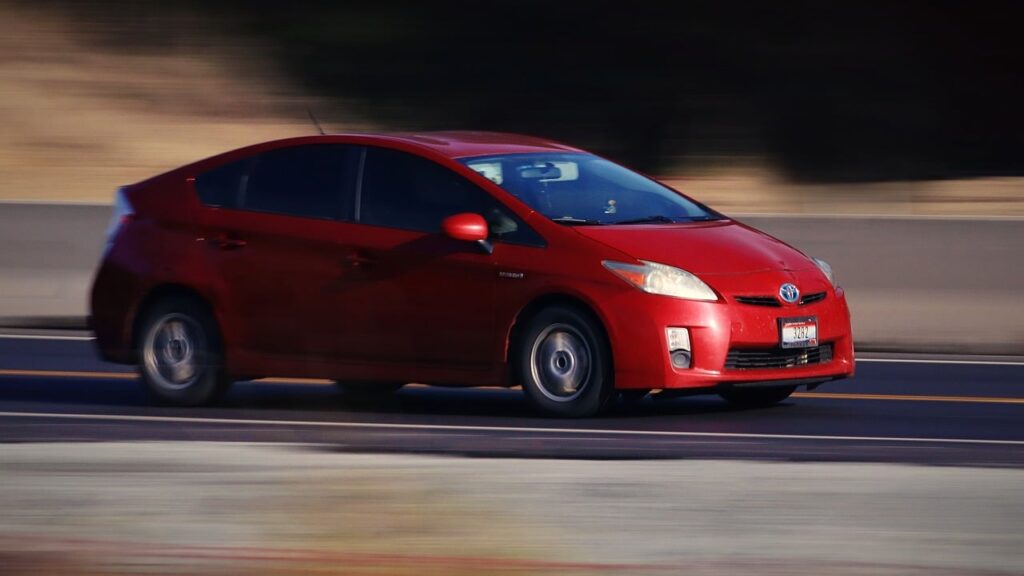
The Gen 3 Toyota Prius is an absolute staple in today’s transportation industry, commonly seeing over 350k miles, moving more people in ride shares and family situations and reducing environmental impact. Unfortunately, these vehicles have 3 common issues that can result in expensive repairs and often don’t get to see out their full potential. Check out these most common issues and get some tips on what you can do to avoid or resolve them.
Blown Head Gaskets Due to Clogged EGR Valves:
One of the frequent problems reported for Prius repairs from 2010 to 2014 is blown head gaskets, often caused by clogged Exhaust Gas Recirculation (EGR) valves. The EGR system is crucial for reducing nitrogen oxide emissions by recirculating a portion of the exhaust gases back into the combustion chamber. However, over time, these valves can become clogged with carbon deposits, affecting their functionality. This issue was remedied in the 2015 model and beyond.
Clogged EGR valves can lead to an imbalance in the air-fuel mixture, causing increased pressure in the combustion chamber and eventually resulting in blown head gaskets. To mitigate this issue, regular maintenance is essential. Prius owners should prioritize cleaning their EGR valves at recommended intervals, which is not always easy to do and sometimes worth a simple replacement of a relatively inexpensive part. Using high-quality fuel additives or running high-octane gas can also help prevent carbon buildup, ensuring the efficient operation of the EGR system and reducing the risk of blown head gaskets.
Proper NiCD Hybrid Battery Maintenance, replacement or upgrade:
The Prius models from 2010 to 2014 utilize Nickel Metal Hydride (NiMH) batteries for their hybrid systems. Proper maintenance of these batteries is crucial for ensuring the longevity and optimal performance of the hybrid system.
One common concern is the impact of high temperatures on NiMH batteries. Exposing the hybrid battery to excessive heat can accelerate degradation and reduce its overall lifespan. Prius owners should be cautious about parking their vehicles in direct sunlight for extended periods, especially in hot climates. Parking in shaded areas or using reflective sunshades can help mitigate heat-related stress on the hybrid battery.
Additionally, leaving the hybrid battery unused for extended periods can lead to self-discharge and potential issues. Prius owners are advised to drive their vehicles regularly to keep the hybrid battery charged. If a Prius will be unused for an extended period, it’s recommended to use a trickle charger or a battery maintainer to keep the hybrid battery in optimal condition.
If you experience lower than normal gas mileage, a hybrid battery that loses it’s charge quickly or a battery failure, you’re going to want to have your battery health checked by a qualified mechanic. They can give you a percentage of battery life and recommend a reconditioned battery with a warranty, a hybrid battery replacement or the ultimate, an upgrade to a lithium battery which will have a significantly longer lifespan.
Brake Sensor Issues:
Another common problem reported in Prius models from 2010 to 2014 involves brake sensor issues. The Prius uses a regenerative braking system that captures energy during deceleration and braking to recharge the hybrid battery. This system relies on sensors to manage the transition between regenerative and traditional braking.
Some Prius owners have reported problems with the brake sensors, leading to issues such as delayed response, inconsistent braking performance, or warning lights on the dashboard. Regular hybrid brake system inspections and maintenance are essential to identify and address sensor issues promptly.
If brake sensor problems are detected, Prius owners should seek professional assistance to diagnose and repair the issue. Ignoring brake sensor issues can compromise the safety and efficiency of the braking system, posing a potential risk to the driver and passengers.
In conclusion, while the Prius models from 2010 to 2014 are known for their fuel efficiency and eco-friendly features, like any vehicle, they are not immune to certain common problems. Addressing issues such as clogged EGR valves, maintaining the hybrid battery properly, and addressing brake sensor issues through regular maintenance and timely repairs can help Prius owners enjoy a reliable and efficient driving experience.






